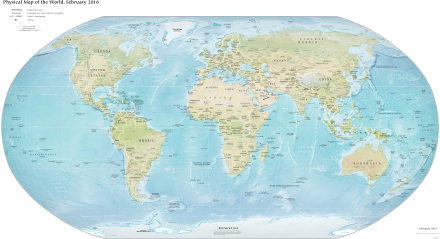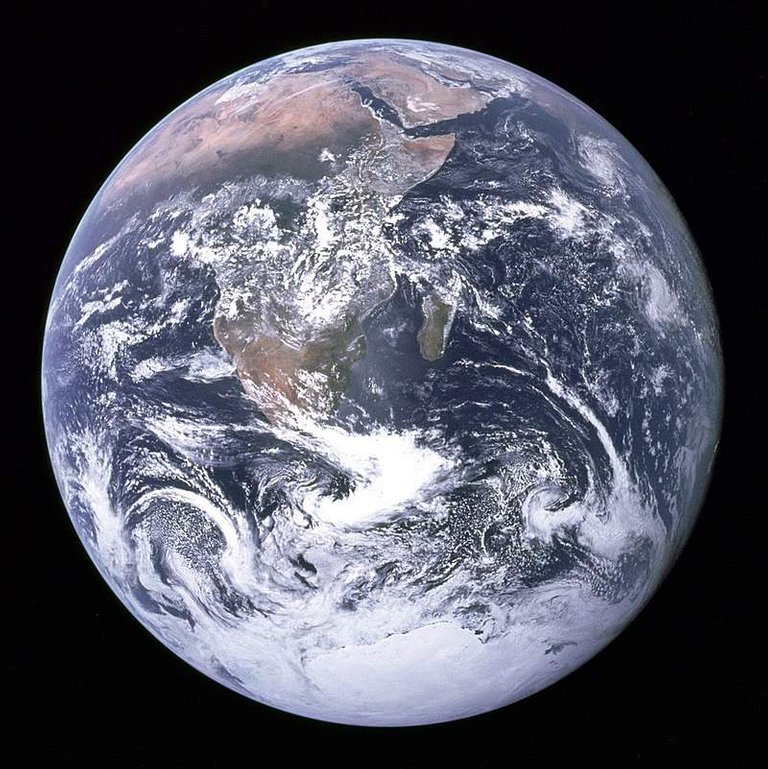This article is about the human aspects of Earth. For planetary aspects, see Earth.
For other uses, see World disambiguation.
The Blue Marble, a photograph of the planet Earth made on December 7, 1972 by the crew of the Apollo 17 spacecraft.
A geopolitical map of world shorelines and national borders under the Robinson projection

The world is the planet Earth and all life upon it, including human civilization. In a philosophical context, the "world" is the whole of the physical Universe, or an ontological world (the "world" of an individual). In a theological context, the world is the material or the profane sphere, as opposed to the celestial, spiritual, transcendent or sacred spheres. "End of the world" scenarios refer to the end of human history, often in religious contexts.

The history of the world is commonly understood as spanning the major geopolitical developments of about five millennia, from the first civilizations to the present. In terms such as world religion, world language, world government, and world war, the term world suggests an international or intercontinental scope without necessarily implying participation of every part of the world.
The world population is the sum of all human populations at any time; similarly, the world economy is the sum of the economies of all societies or countries, especially in the context of globalization. Terms such as "world championship", "gross world product", and "world flags" imply the sum or combination of all sovereign states.
Aloso know your world
Posted using Partiko Android
Hi! I am a robot. I just upvoted you! I found similar content that readers might be interested in:
https://en.wikipedia.org/wiki/World